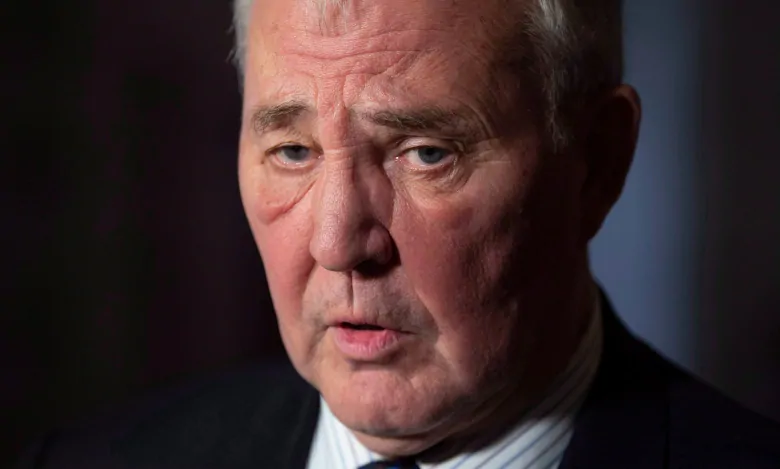U.K.'s proposal to limit Huawei's role in 5G networks most 'pragmatic' path, expert says

Reports that the United Kingdom plans to limit the use of Huawei equipment to less critical parts of Britain’s 5G networks is the most “pragmatic position” for the country, a British cybersecurity expert says.
Sources revealed to Reuters this week that senior government officials settled on the recommendation Wednesday, though a final decision is expected to be made at a meeting held by Britain’s National Security Council next week.
“The U.K.’s position is that it will exclude Huawei from the most sensitive parts of the 5G network, but it’s going to allow it to supply components to what’s called the ‘edge’ of the network,” explained James Sullivan, a researcher at the Royal United Services Institute, an independent defence and security think tank based in London.
The risk of a privacy breach is less likely in that part of the network, Sullivan told CBC Radio’s The House.
5G technology will vastly improve data connection speeds, but experts have long warned that China could pressure Huawei into accessing users’ personal information, with Sullivan acknowledging that the company has “a lot more software flaws” than other vendors.
Canada’s decision pending
The British government’s move is set to leave Canada as the only undecided nation within the Five Eyes intelligence-sharing network, at a time when the country is grappling with its strained relationship with China.
The first phase of extradition hearings for Huawei CFO Meng Wanzhou concluded in Vancouver this week, while across the country a House of Commons committee on Canada-China relations held its first meeting.
But Sullivan exercised caution when it came to suggesting whether the U.K.’s middle-of-the road approach could work here.
“One of the reasons why I think the Huawei decision in the U.K. is actually pretty strong is because the U.K. has examined this equipment. The [National Cyber Security Centre] works really closely with Huawei and it identified a lot of what it called ‘shoddy’ engineering,” Sullivan said.
“It’s professional judgment was that Huawei was not deliberately manipulating this equipment…so Canada should really rely on its own technical authorities to make that assessment.”
The Canadian government has been debating whether or not to allow Huawei equipment in Canada’s 5G networks for more than a year, with Public Safety Minister Bill Blair saying Friday that talks remain ongoing.
“The conversation that we’ll have with our Five Eyes partners is important, but my first and only real priority is the safety and security of Canadians and the security of our digital environment,” Blair said. “That’s what we’re focused on and those are the issues which will inform our decision.”
Sullivan: U.K defying Trump a ‘mischaracterization’
In response to whether the Trump administration — which has pressured the U.K. into endorsing a total ban — would view the position as a bold move, Sullivan disagreed.
“I think [it’s] a real mischaracterization from many about what the U.K. has actually done, because it has limited Huawei access to U.K. networks dramatically,” he said. “This debate has come down to something like it’s all or nothing. It’s very binary.”
Sullivan said that while focusing discussions about Huawei equipment on political arguments is necessary and understandable, it’s taken away from the technical conversation underpinning the debate.
“I think a lot of people are playing quite a zero-sum game here, that just banning Huawei is the golden ticket to securing 5G networks,” he said. “That’s just simply not true.”





